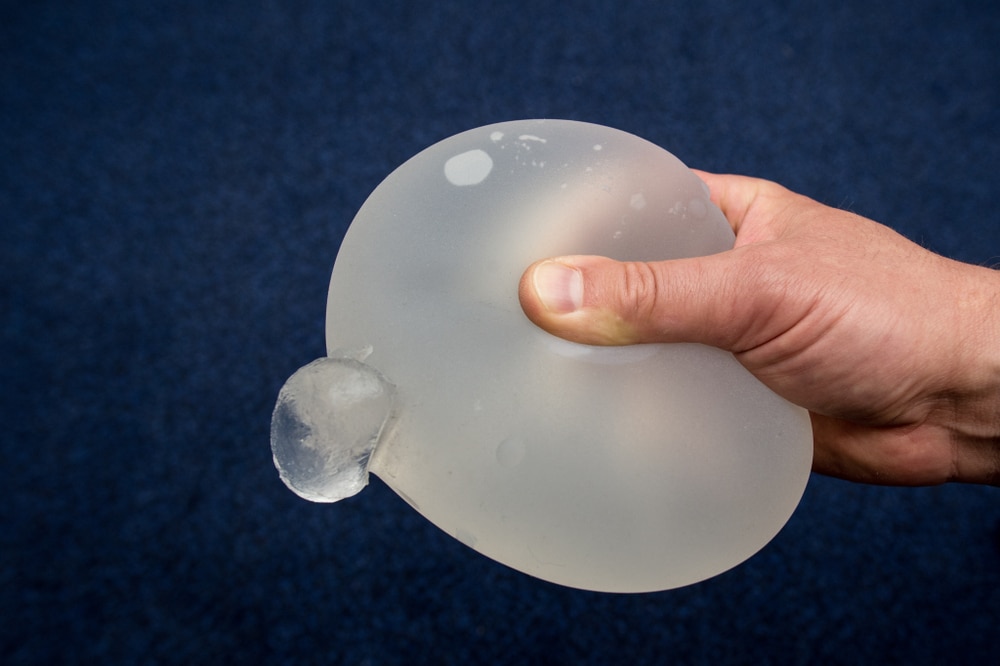Help! My Breast Implant Ruptured!
Every kind of breast implant is constructed with an outer shell made from silicone. The silicone can develop a hole or tear, which is called a rupture. As time goes on, the chances of your implants leaking or rupturing becomes higher. What do you do if an implant ruptures?
Recognizing a Ruptured Breast Implant
There are a surprising number of circumstances that can cause an implant to rupture. Ruptures aren’t always caused by a hard impact or trauma. As the implant ages, it naturally becomes less sturdy and more susceptible to rupturing. At that point, any number of things can cause damage. You might experience trauma in a car accident, have a needle inserted through the implant during a biopsy, or have a rupture caused by damage to the implant caused during the first surgery.
Saline Ruptures
Saline and silicone ruptures are different in their presentation. Saline ruptures and leaks can occur due to damage or a failing valve. The leak causes the saline to exit the implant over a few days, which then leads the breast to appear deflated. The deflated appearance immediately indicates that it’s ruptured. Because the body absorbs the saltwater, there aren’t immediate consequences from the leak itself.
Silicone Ruptures
A silicone rupture involves gel instead of liquid saline. Since the gel solution is thicker, it leaks much more slowly. Some people don’t notice their silicone implants have ruptured for a while because they don’t cause the same rapid deflation as a saline rupture. The body is not capable of absorbing silicone gel.
The signs might be more subtle than an obvious deflation. Your breasts might gradually change in size and shape. You might also experience tenderness that escalates into increasing pain, swelling, and firmness as the gel continues to leak. The rupture can lead to capsular contracture. If your rupture doesn’t present with symptoms, it’s called a “silent rupture.”
Implant Rupture Screening
Since silent ruptures are a possibility, the FDA has screening guidelines to check for rupture problems. The first screening should occur three years following the original implant surgery, and then every two years following that. Having health insurance cover the screenings might be difficult, so you will need to discuss options with your doctor’s office.
Correcting an Implant Rupture
Unfortunately, yes, a ruptured implant is a cause for corrective surgery. This remains true whether the rupture involves gel or saline. During the surgery, the implant will be removed. Depending on the circumstances, your surgeon might remove the scar tissue capsule that surrounds the implant, or they may opt to cut through the capsule by creating small incisions. Even if only one implant is ruptured, most surgeons will remove both implants during the surgery. Any silicone that’s leaked beyond its capsule will also be removed by your plastic surgeon during the surgery. You can get breast implant replacement surgery in order to keep the look that you gained with the implants before they ruptured. Speak with Dr. Golosow about your options during a consultation appointment today!

